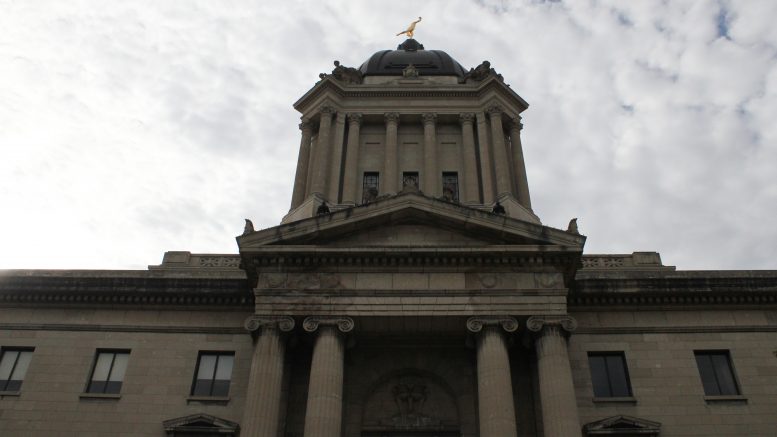The University of Manitoba’s board of governors will undergo its largest one-time turnover in years after the provincial government revoked the seats of seven sitting members and announced 11 new appointments last week.
In a release issued Jan. 25, the government announced the appointment of 11 new members and the re-appointment of one student member to the board responsible for overseeing the administrative and business concerns of the university.
The 23-member board is made up of 12 appointments from the lieutenant governor on the advice of the provincial government – including three students – while three are elected by U of M graduates, three are elected by the university senate, and three are appointed by the University of Manitoba Students’ Union (UMSU). The university’s chancellor and president are ex-officio members.
Four of the appointees fill positions that have been open for re-appointment since May 2016, while seven positions were opened up by revoking the seats of sitting members, including board chair Ted Bock, whose three-year term was not set to expire until May 2019.
Minister of education and training Ian Wishart said the move is not an indictment of the board but an effort to establish the membership that will guide the university moving forward.
“It really has nothing to do with the performance of the previous board members, but we have faith that the people that we have appointed will bring a new and fresh approach to the board and I hope we do see some changes in the future,” he said, while thanking the outgoing members for their service.
Three of the replaced members’ terms were set to expire at the end of May, with the remaining three set to lapse a year later, in May 2018. Members are appointed to three-year terms, except students, who serve one-year appointments.
Wishart said the government will meet with the new appointees to go over its priorities, which he said include tightening the links between the university’s programming and the needs of the labour market to help ensure graduates are stepping into careers beyond the U of M.
“I think it’s a responsibility of the government, and the responsibility of the board, to make sure that [the university] has the facilities in place, and the priorities in place, to make that happen,” he said.
Wishart also said making the appointments in January allows the new members to settle into their roles before provincial budget discussions begin.
The appointments mark the Progressive Conservatives’s first to the U of M board since taking power in the spring. Wishart said further appointments to the boards overseeing the province’s other universities and colleges can be expected.
“There’s certainly going to be some changes into the future on other post-secondary institutions as well,” he said.
The PCs were elected to government in April following more than 16 years of provincial NDP leadership. Since taking office, the Tories have made numerous appointments to Crown corporations and service boards.
Canadian Federation of Students-Manitoba chairperson Michael Barkman said he finds it “a little bit concerning” to see nearly half of the U of M board turn-over at once.
“It will most certainly have an impact and it is a concern in some ways,” he said.
“I think it’s really important that the board understands that their role is to take the money that is given from the province and spend it in ways that focuses on education and that they have a critical role in that – not just [as] a rubber stamp of whatever the administration is doing,” he said.
Wishart noted the government appointees have their own independent connections with the university and said he expects the board to provide careful oversight.
“We ask the board members to use their discretion and behave with due diligence on good governance models,” he said. “Good governance is never a bad thing. They’re not put in place to rubber stamp our policies and, frankly, they don’t represent a majority [on the board], really.”
“They’re there to provide good advice and good counsel as an appropriate board member should be,” he said.
Wishart added that he is not worried the appointments will impact the continuity of the board moving forward, noting that 12 members are remaining.
UMSU president Tanjit Nagra, who sits on the board as one of three UMSU appointees and one of six overall student representatives, said a turnover on the board is to be expected when a new government comes into office but echoed the call for independence.
“It was completely their decision, there’s nothing saying that they can’t do that,” she said, adding that “when we go through a government change, there’s always room for certain changes and [this] might be one of them […] However, I would hope that folks appointed are able to ask tough questions and make wise decisions.”
The board was scheduled to meet Jan. 31 but the meeting has been postponed to later February to accommodate the new members.
New faces
Six of the 11 new appointments to the board are U of M alumni and many have business and private sector experience.
Kimber Osiowy, Kathryn Lee, Marc Mollot, Michael Silicz, Rafi Mohammed, and Laurel Hyde are all U of M graduates appointed to the board. Jane MacKenzie, Steve Demmings, and Judith Linden were also appointed.
Law students Kyle Mirecki and Heather Maxted were appointed as new student members. Medical student Ritika Khatkar has been re-appointed for a third term as a student member.
In addition to Bock, Bev Passey, Anasatasia Sych-Yereniuk, Mona Forsen, Tom Millington, Terry Sargeant, and Michael Robertson have all been removed from the board.


